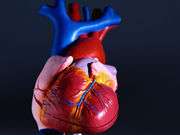Increase in use of mechanical circulatory support in PCI

(HealthDay)—For patients undergoing percutaneous coronary intervention (PCI) there has been an increase in use of mechanical circulatory support (MCS), according to a study published in the Jan. 1 issue of The American Journal of Cardiology.
Rohan Khera, M.D., from the University of Iowa Carver College of Medicine in Iowa City, and colleagues examined trends in the utilization and impact on in-hospital mortality of percutaneous ventricular assist devices (PVADs) and intraaortic balloon pumps (IABPs). A total of 5,031 patients who received a PVAD and 122,333 who received an IABP on the same day as PCI were identified using the National Inpatient Sample (2004 to 2012).
The researchers found that from 2004 to 2012 there was an increase in MCS utilization from 1.3 to 3.4 percent of all PCIs (P < 0.001), with increases in the use of PVAD and IABP (both P < 0.0001). Compared with IABP recipients, PVAD recipients were older, more likely to have heart failure and/or chronic kidney disease, and to be admitted electively; they were also less likely to have acute myocardial infarction, cardiogenic shock, or need mechanical ventilation. Before adjustment, in-hospital mortality was lower in PVAD than IABP recipients (P < 0.001). In-hospital mortality was similar in both groups in propensity-matched analyses (odds ratio, 0.88; 95 percent confidence interval, 0.70 to 1.09).
"There has been a marked increase in the utilization of MCS in patients undergoing PCI," the authors write.
One author disclosed financial ties to the medical device industry.
More information:
Abstract
Full Text (subscription or payment may be required)
Copyright © 2015 HealthDay. All rights reserved.

















